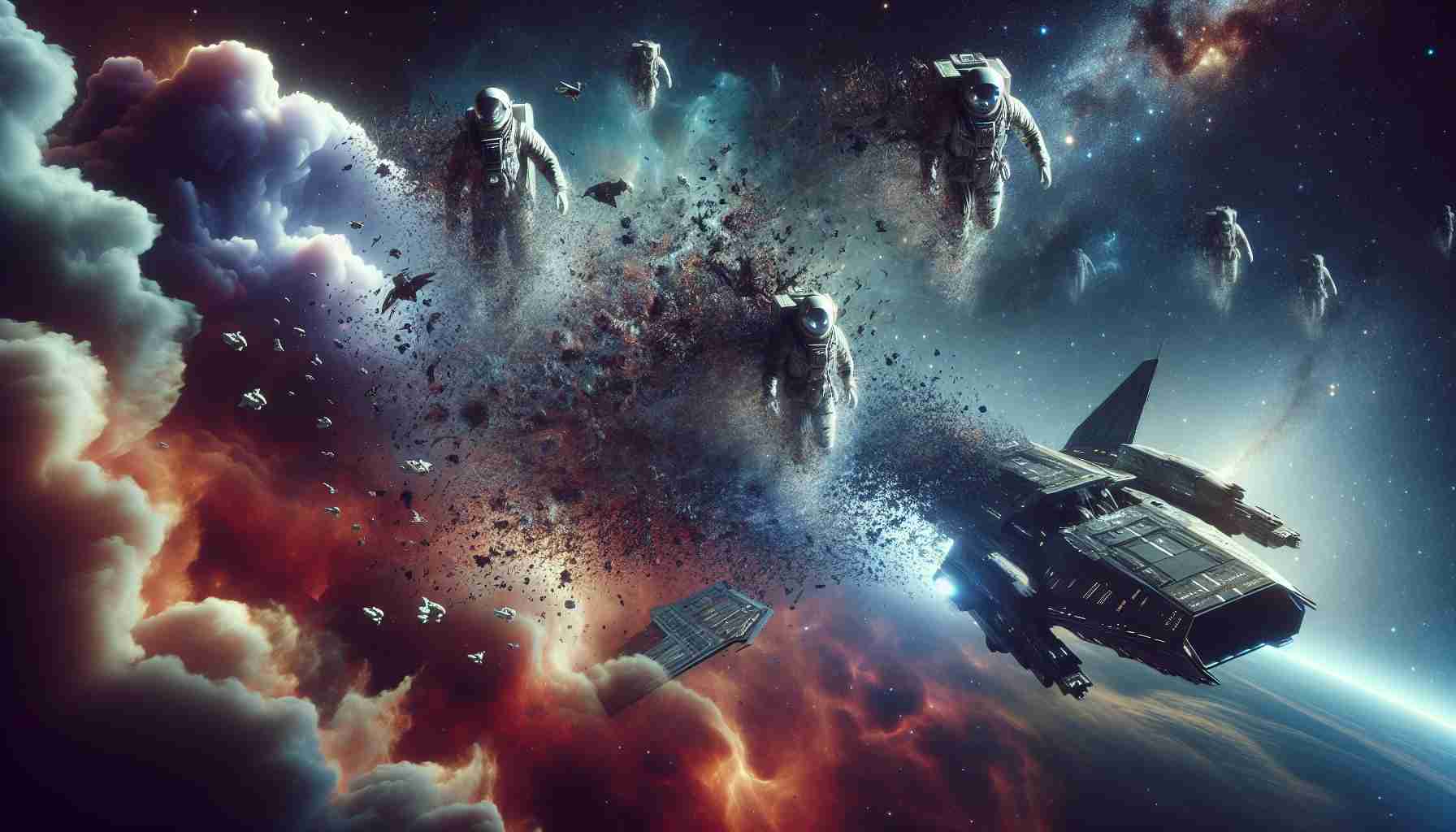APPLE TV+ DROPS THE BALL WITH LATEST SCI-FI ENDEAVOR
Despite once holding promise as an intriguing multiverse saga, Apple TV+’s “Dark Matter,” an adaptation of Blake Crouch’s novel, seems to have veered off the path of compelling storytelling. Initially captivated by M. Night Shyamalan’s earlier series “Wayward Pines,” also from Crouch’s mind, this later show has unfortunately hit a similar snag.
Dark Matter showcases a multiverse that’s lost its novelty in a saturated market, but it had potential. Before it lost its appeal, it laid the groundwork for an intense psychological clash between two iterations of the same man – one a Nobel laureate, the other a humble professor – after a bizarre universe-swapping turn of events.
The suspense built as Professor Jason Dessen, portrayed by Joel Edgerton, grappled with his new reality, one where his familial life was usurped by his ambitious alternate. His quest to navigate this unexpected life provides a captivating duality, further complicated by his alternate’s own machinations within Jason’s original universe.
However, the series spirals down when it takes its audience on a confounding journey, embracing a more fanciful approach to universe-shifting. As the characters scurry through a maze of dimensional doorways that echo their psychological state, the story abandons any pretense of scientific plausibility that it had. Embracing the notion that intense focus can guide them to their desired reality, the show dips into the realm of wishful thinking rather than sci-fi.
It’s at this point when the previously invested viewers, hoping for consistencies and logic within the narrative, might decide to tap out, yearning for the kind of series where substantial storytelling reigns over ill-defined fantasy. Alas, even an actor of Edgerton’s caliber cannot salvage a storyline that is unwilling to stick to its speculative but solid roots, leaving the audience grasping for an exit to more narratively satisfying worlds.
Key Challenges and Controversies in Sci-Fi TV Series Adaptations
One of the most significant challenges in adapting a science fiction novel like “Dark Matter” to a TV series lies in balancing the complexity of the story with the visual and narrative constraints of the medium. How do you maintain the integrity of the original while making it accessible and engaging to a broader audience?
Another challenge is the risk of diverging too much from the source material, alienating fans of the book. This can create a controversy around the authenticity of the adaptation. For “Dark Matter,” a story with a detailed and specific set of scientific rules, staying true to the novel’s spirit is essential. However, the series seems to have stirred discontent by leaning towards a less scientifically plausible narrative.
Regarding advantages, television adaptations can expand on characters and settings due to the longer format, providing audiences with a deeper and more immersive experience compared to a standalone novel. For “Dark Matter,” the philosophical and emotional depth of the characters’ experience with alternate realities offers rich ground for exploration.
However, a disadvantage can be the dilution of storytelling as TV series might add filler content or unnecessarily draw out storylines to meet the demands of a television format, potentially losing the tension and pacing crucial to maintaining a gripping narrative.
As for related links with more information about “Dark Matter”, the series, or information on Apple TV+’s slate of shows, you can visit:
Apple TV+
Please note, I am unable to guarantee the URL’s validity or the presence of specific content on the website, as the URLs or content may change after my knowledge cutoff date or the URL’s validity may be region-specific.
